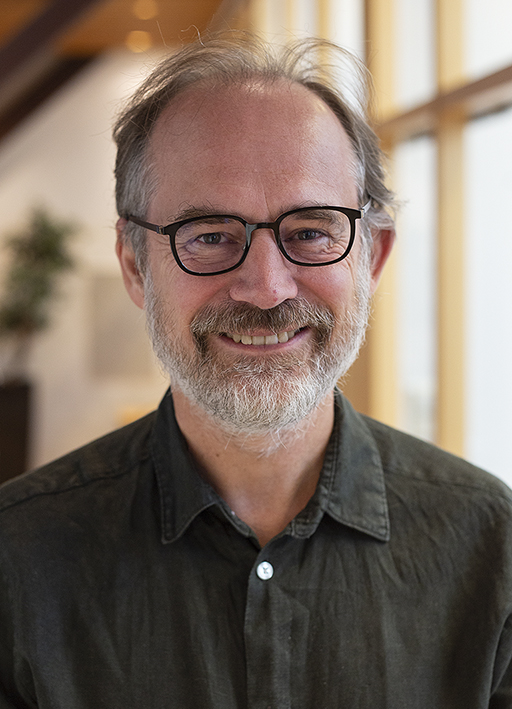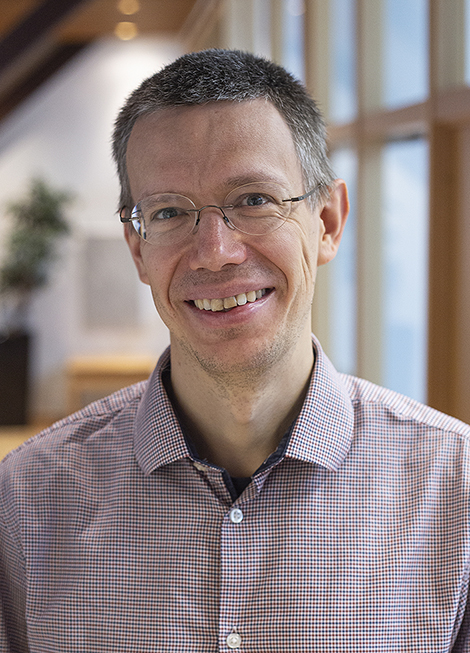Meet the Project: Representation theory – Combinatorial aspects and applications

In modern mathematics, representation theory is a vast field with many different branches. Some are directly linked to physical applications, ranging from string theory in physics to Astronomy, whereas others are more concerned with the intrinsic mathematical notions of representation theory.
Representation theory studies nonlinear algebraic structures by representing their elements as linear transformations of vector spaces. The interplay between homological and abstract categorical notions and concrete combinatorial structures is pivotal for studying representations of finite dimensional algebras. This CAS project will deal with problems of both kinds and brings together experts with various perspectives.
"The interplay between homological and abstract categorical notions and concrete combinatorial structures is pivotal for studying representations of finite dimensional algebras", Oppermann and Buan write in their project description: "There has recently been a fruitful interaction between this branch of representation theory and mathematical physics, algebraic combinatorics and topological data analysis, exemplified by the concepts cluster categories and of persistence modules, respectively. In this project, experts from these fields will cooperate with representation theory specialist, aiming both for intrinsic progress in representation theory as well as concrete applications within these fields of application."
First of all: What made you so interested in this field? How did you end up here?

'As an undergraduate, I enjoyed many fields of mathematics, as well as physics and computer science', Aslak says. 'I found this field particularly attractive because of the interplay between concrete combinatorial and visualizable objects, with very abstract and general ideas and theories.'
Steffen says that he liked mathematical challenges when going to high school, and so it was natural for him to study mathematics. 'Always enjoying the academic challenge more than potential usefulness it was natural for me to gravitate towards pure mathematics. My first contact with representation theory was a seminar on group representations I took during my second semester at university, and enjoying both the subject and the community, I stuck with it.'
Could you briefly explain your project? What is your main objective?
'Our primary objective is to make progress both on some of the most central applications of representation theory and some of the currently most interesting intri

nsic questions in this field of mathematics. Our secondary objective is to bring together top researchers from topological data analysis with people whose background is from representation theory, aiming for improved interaction between these fields.'
Why is CAS the right arena for this type of research? What do you hope to accomplish during your year at CAS?
'CAS is perfect for doing research in mathematics. The main added value is the continuous flow of ideas made possible by spending time with current and potential co-authors. Regular interaction with researchers who have their main interests in adjacent fields of mathematics gives an excellent basis for coming up with groundbreaking theories and results, which is what we hope to accomplish.'
You’ve been here at the Centre for a few months already. How has the research stay been so far?
'We have already made progress. Some papers have been submitted, and several subprojects have been started. The CAS administration and leadership take very good care of us. The working conditions could not be better. One month of rain in Oslo has also been helpful, we have not been distracted by the sun!'
How did you decide which scholars to invite for a project of this scope?
'We aimed for a relatively young group, trying to find people who we think will dominate the field for the next decades. In particular we looked to include people whose interest both included intrinsic problems in representation theory, and applications in neighboring fields.'
CAS’ mission is to further excellent, fundamental, curiosity-driven research. Why, do you think, is fundamental research important?
'This is a vast question, not really to be answered in a paragraph. Our society would look very different without centuries of fundamental research in mathematics. Discoveries in the 17th and 18th century made secure and reliable communication and authentication possible in the internet-age. Without mathematical language one cannot even imagine the emergence of programmable computers. The main mystery and magic of mathematics is that research driven purely by our curiosity and sense of beauty, over and over, turns out to be useful. Sometimes next month, other times, two centuries later. We also believe that a society where curiosity-driven research is appreciated and supported, is a better society for all, than one which is dominated short-term economical thinking.'